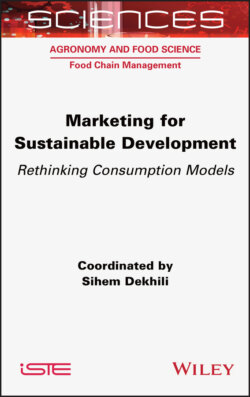Читать книгу Marketing for Sustainable Development - Группа авторов - Страница 17
1.2. Corporate adjustment strategies in response to the contestation of market logic 1.2.1. From an adaptive perspective of uprising recovery by the companies...
ОглавлениеIn a fast-moving anti-establishment environment that often generalizes (Dubuisson-Quellier 2009), companies have a tendency to respond to opposition movements through adaptive and short-term initiatives, such as the provision of products and services that are supposed to be “responsible” (biological, fair, green). These provisions are not necessarily backed up by a thorough review of procedures, means and methods (Koskenniemi 2019). However, companies would have to invest a lot in a transformative policy, having to change their habitual reactive attitude of creating incomplete offers and taking the risk of maintaining opposition, rather than appeasing it. In doing so, companies are only suggesting superficial adjustments based around a traditional sales logic, which hints more at greenwashing than true compliance with the values of social responsibility and sustainable development.
As a result, companies that subscribe to the traditional market-oriented system are considered responsible, by anti-consumption groups, for damaging the environment, encouraging over-consumption and spreading poor-quality food (Daniel et al. 2008). The one factor these activists have in common is the contestation of a market logic that encourages excessive consumption, without respect for individuals and groups developing practices supporting opposition and anti-consumption, or even deviance (Amine and Gicquel 2011). There appear to be several elements at play at the intersection of different types of socio-environmental contestation, at the micro level, companies and their enslaving mercantile practices, and at the macro level, the overall functioning of society, which is deliberately based on a consumerist logic emerging from the capitalist system.
In fact, even though the market has recovered from some of the criticism, and endogenized it through the development of products labeled “sustainable” or “ethical”, the fact of the matter is that significant numbers of citizens remain suspicious and continue their protest and defection from the market (voluntary reduction of consumption, prioritization of local distribution networks, boycotts, etc.). While some consumers approve of companies’ efforts to become greener, others continue to contest them or to be skeptical towards them, assuming their intentions to be much less respectable. The latter consider the “socially responsible” branding of products to be a commodification of ethics and an opportunism that only encourages their resistance to such companies. As a result, the socially responsible position demonstrated by companies in the traditional market and seen in the development provisions that are labeled socially responsible have struggled to reach the expected objectives, in particular, because they use the same sales techniques and persuasive registers that have been challenged (Koskenniemi 2019). On the other hand, the failure of these companies to take the socially responsible expectations and principles that consumers associate with sustainable development on board creates a supply of products and services that are considered to be insincere, as they do not seem to align with the values defended by these individuals. Indeed, the various contestation movements, characterized by strong socially responsible concerns, are the manifestation of a persistent criticism of the solely market-oriented offers of companies and of market ideology, despite the attempts made to endogenize them.
With this in mind, traditional marketing, which has, to date, adopted reactive and adaptive strategies towards consumer efforts, should now make a change to become part of a proactive strategy to transform its values, provisions and processes, in order to meet the expectations of socially responsible consumer-citizens.
